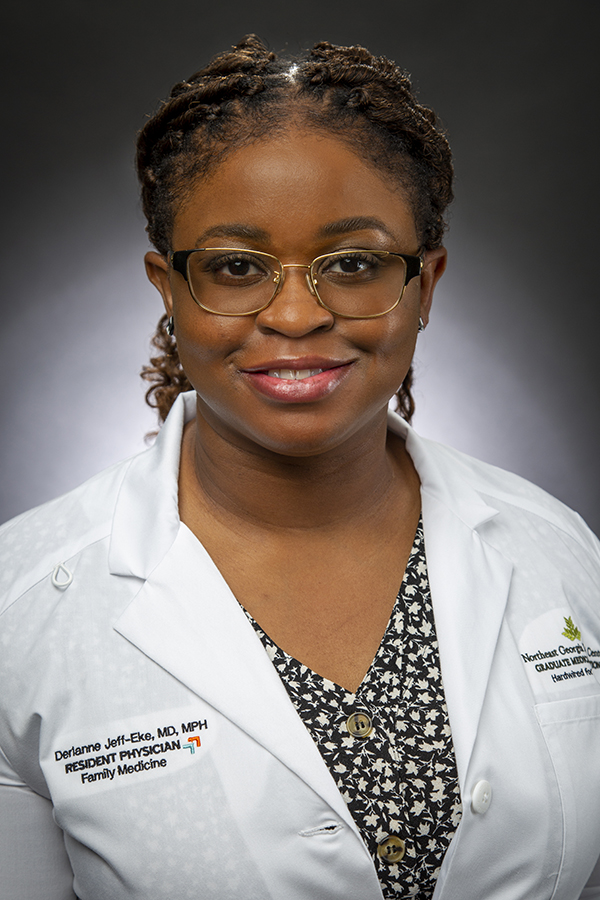Anxiety is real
I had my first panic attack just before medical school.
I was going through a traumatic event and stressed about how that would affect my medical school journey, suddenly it occurred to me, “what if I can’t go to medical school?” It’s those what-ifs that get you – and suddenly it snowballs into scenarios where (insert bad thing here) is going to happen – or you think it’s going to happen.
Anxiety has a spectrum of severity and has many forms.
A panic attack (one form of anxiety) presents with an intense sense of overwhelming and debilitating fear, you may feel it coming on, or maybe not. The attack is often coupled with various physical symptoms like chest tightness/pain, shortness of breath, sweating, nausea, vomiting or tremors. I was working as a patient sitter in an ER, walking back from my break, and my heart started racing, my breathing got more shallow and rapid, my skin got clammy and overwhelming fear took hold. I was sinking, no metaphors – actually sinking to the floor. I felt like I couldn’t take a breath and my chest felt like it was caving in. I had nurses, techs and co-workers lifting me into one of the rooms, calling for the doctor, and putting oxygen on me. It was bad, I was scared, I felt alone, and everything was fading out of focus. This is one type of anxiety disorder, but it may not be like this for you.
Anxiety can present itself as brief episodes that happen so infrequently that it’s almost undetectable, or a daily presence that keeps rearing its ugly head. You may have anxiety or worry about many different areas of your life; this is the most common form of anxiety called generalized anxiety. Anxiety can also be more specific to life events; for example, some individuals experience anxiety concerning a divorce, illness in the family, or even a transition to a new level of your professional/academic life. Anxiety can also show up in many other situations like social interaction for fear of being judged, fear of leaving your house, fear of heights, fear of a specific environment and the list goes on.
About 40 million adults suffer from some form of anxiety in the United States – that’s 19.1% of the entire population. Anxiety sufferers are up to six times more likely to be hospitalized for a mental health concern and have three to five times more clinic visits than those without anxiety. It is very common, yet less than half of those suffering from anxiety are treated. Anxiety affects all ages, races, genders, levels of education and economic classes. Anxiety can become a part of you – to the point that you are numb to its effects.
Diagnosing anxiety can involve multiple approaches.
There is no blood test or imaging that your provider can reference to diagnose an anxiety disorder. Most likely, your primary care doctor will run tests to rule out some common health conditions like heart and thyroid, which can sometimes present with anxiety-like symptoms. To get the most accurate diagnosis and to determine if there is a need for medication, you will need to answer questions and you are also encouraged to ask your own questions. Not everyone needs medication for anxiety, and even if you eventually get to that point, your provider may want to start you on a low dose.
A significant number of anxiety sufferers respond extremely well to cognitive behavioral therapy – or talk therapy. For those with more complex and/or severe anxiety, the combination of talk therapy and medication may be the most helpful. If may also be recommended to talk with other specialties – such as psychiatry, psychology, counseling, social work or family therapy to tailor your care.
You are worth it!
Getting help to be the best version of yourself is the bravest and most selfless change you can make.
For some of you this was a lot to take in – and it may feel like this was just one more overwhelming thing to consider. For those of you who suffer from some form of anxiety, know that you aren’t alone. It may seem lonely right now, but there is help available.
Next Steps
Scheduling an appointment with one of Northeast Georgia Physicians Group’s (NGPG) behavioral health therapists might be the next step for you. NGPG has providers in many locations across north Georgia to talk with you and help you through your anxiety. Call 770-848-6014 to learn more and book an appointment today!


